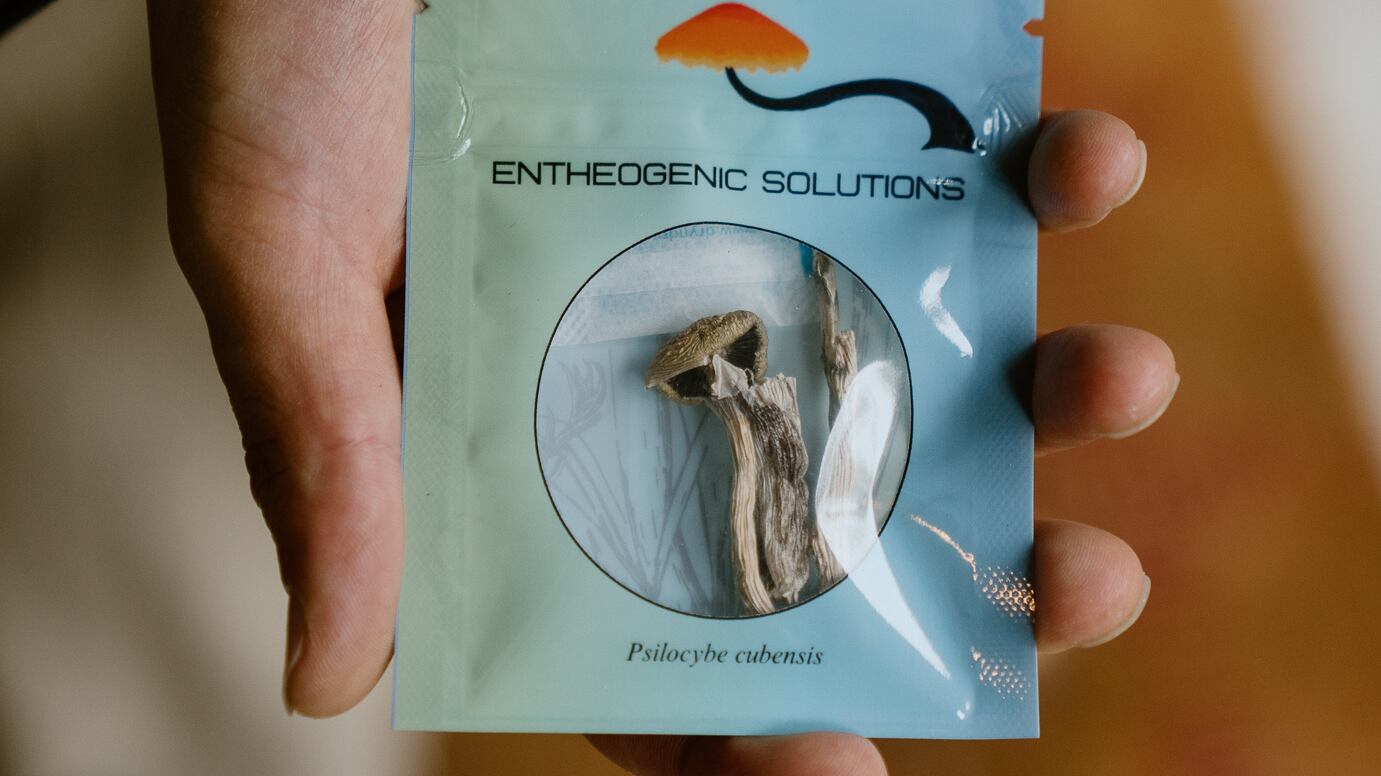Using psychedelic mushrooms in a “real world” setting under Oregon’s first-in-the-nation legal program leads to significant improvements in depression and anxiety, according to preliminary results of a study released this month by one participating clinic.
Conducted by Bendable Therapy, a Bend-based nonprofit licensed by the state to host people seeking psychedelic experiences, and research partner Osmind Inc., the study tracked 88 participants before, during and after Bendable’s program and found improvements at one day and 30 days after completion, Bendable said in a press release.
The study adds to a growing body of evidence that psilocybin can alleviate persistent depression and anxiety, among other conditions. Researchers at Johns Hopkins University are enrolling subjects for a study of psilocybin as a treatment obsessive compulsive disorder, the subject of a recent first-person WW story.
Unlike clinical studies, Bendable didn’t solicit subjects, but instead asked clients if they’d like to participate. Only three people were screened out, a vanishingly low rate.
“This is what it looks like, boots on the ground,” said Bendable co-founder Ryan Reid. “These are regular people coming in to seek services.”
Ninety-seven percent of participants reported no significant negative effects, Bendable said, and none had adverse events requiring emergency services.
The study went beyond most of those done in laboratories because it didn’t screen out people who were on medication for anxiety or depression, Reid says. Lab studies often exclude medicated subjects to eliminate a variable that might skew results.
Conventional wisdom is that people on selective serotonin reuptake inhibitors need larger doses to have a therapeutic experience because both SSRIs can block the action of psilocybin. Both compounds act on the neurotransmitter serotonin.
Bendable found that medicated subjects needed only slightly larger doses to achieve the intensity needed to increase sense of wellbeing and alleviate anxiety and depression. Bendable’s standard dose is 24 milligrams of state-certified, tested psilocybin (about four grams of mushrooms not tested for potency). On average, participants taking SSRIs need only 5 mgs more than that, Reid says, a 21% increase.
“You don’t have to blow people to Jupiter to have an effect,” Reid said.
Founded in 2023 as the fifth psilocybin service center in the state, Bendable’s psilocybin program is among the most comprehensive. Clients must participate in a consultation, then fill out and online application, followed by a one-hour intake interview.
They do two preparation sessions with a trip facilitator then at least two integration sessions, where clients process the experience and work to take any insights into daily life. If the chose, participants can join a weekly video call with others who’ve done the program to compare notes as time passes.
Total cost of is $3,800 for an individual session and $2,200 for a group one.
Reid stressed that the study considered psilocybin as part of Bendable’s program, not psilocybin done without preparation and integration. If psilocybin alone produced such results “everyone who went to Burning Man would be in peak mental health,” he said.
In general participants showed moderate improvement one day after a psilocybin session, and greater benefit at 30 days, Reid says, a phenomenon he attributes to integration.
In addition to Osmind, Bendable worked with Robin Carhart-Harris, PhD, a British neurology professor at University of California, San Francisco, who has published brain-imaging studies on psilocybin, LSD, MDMA and DMT. The Times of London named him to its 31-member “Science Power List” of medical researchers in 2020.

